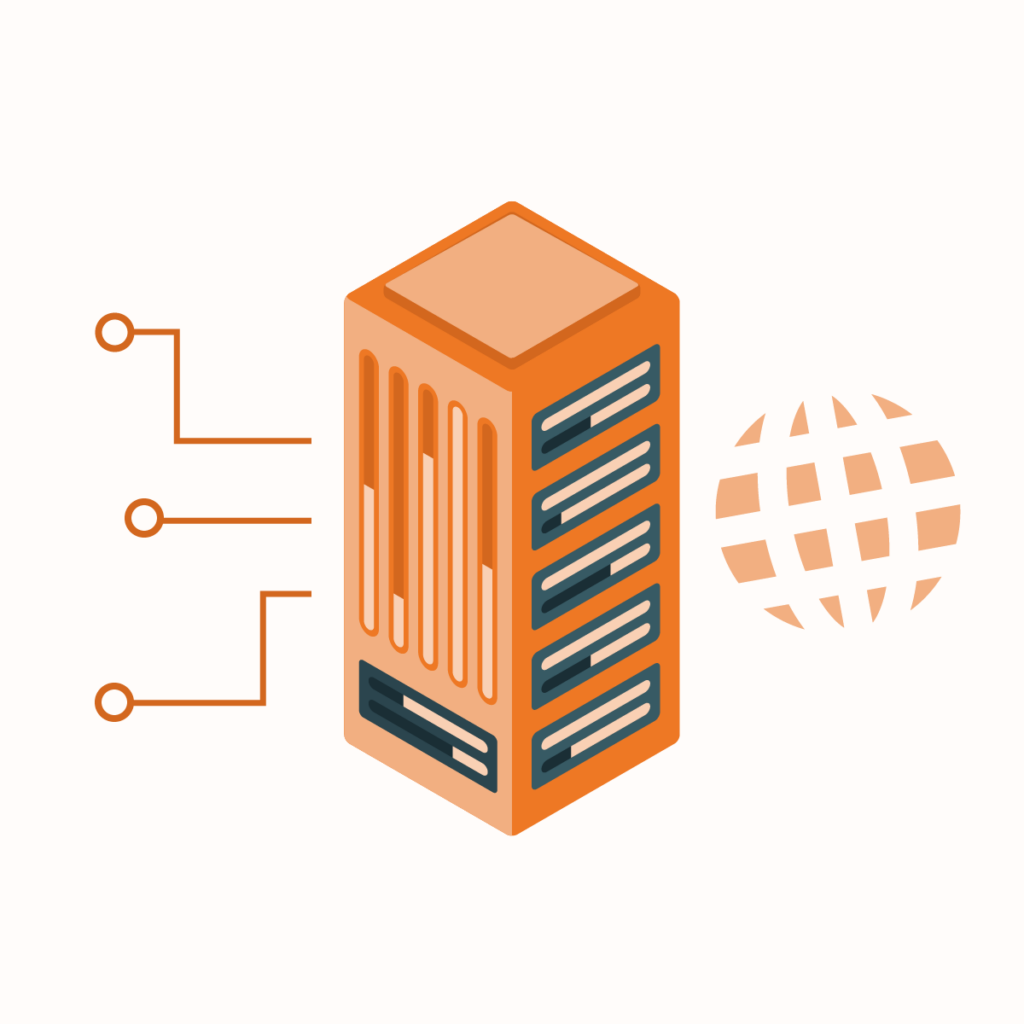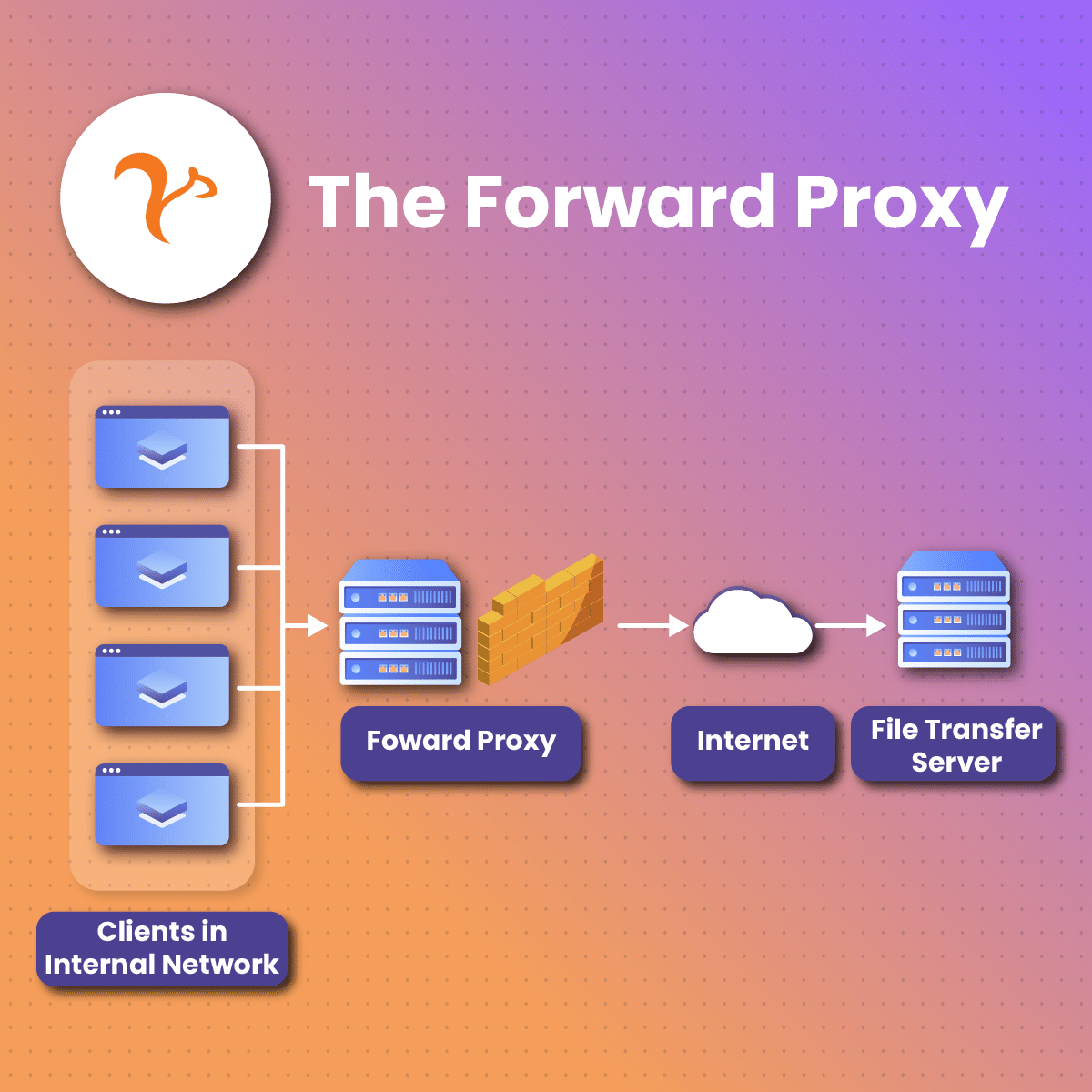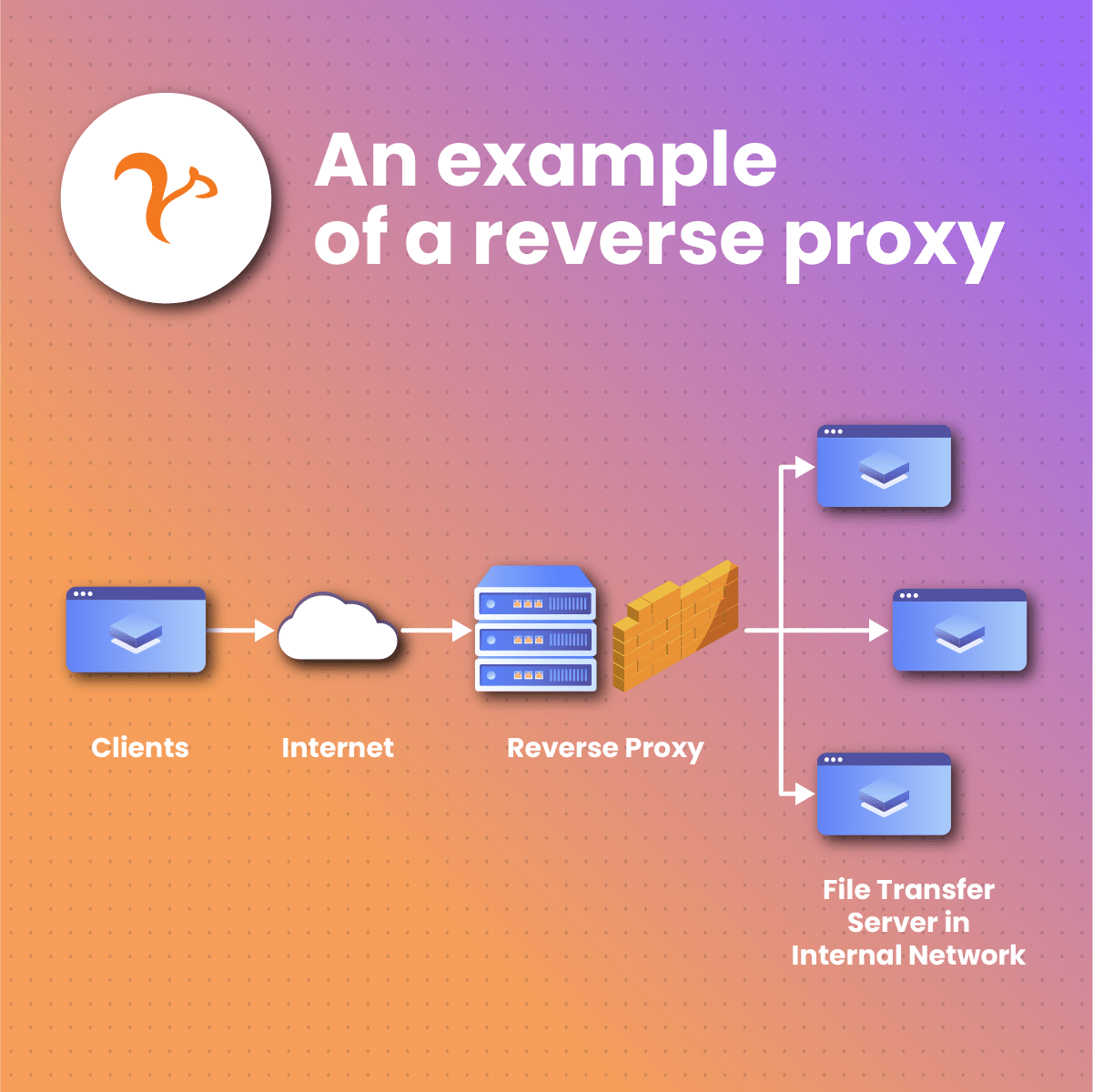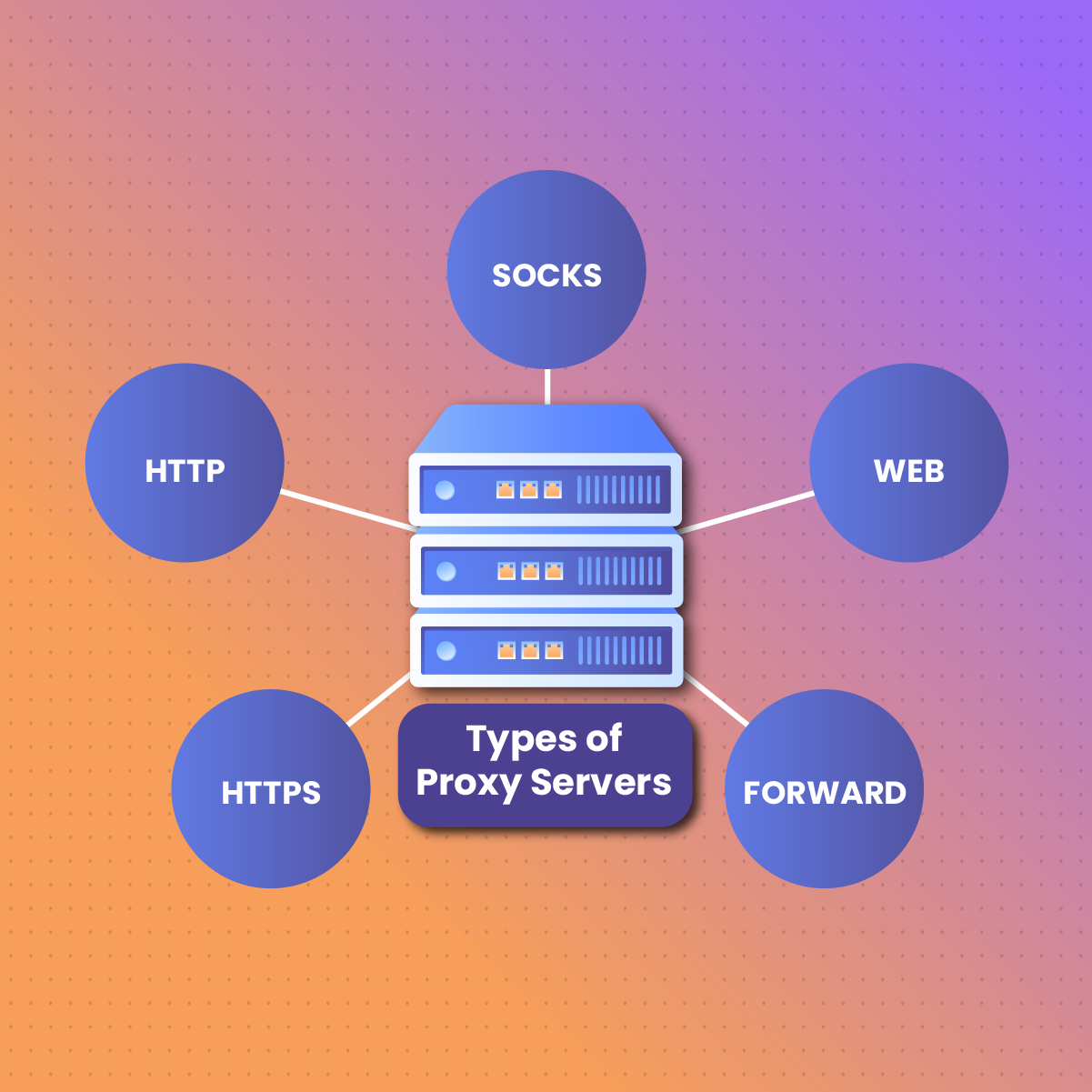When surfing the web, you need to consider the risk you are exposing yourself to. Considering the amount of damage a hacker can cause if they get access to your confidential data, having a forward proxy server is the least you can do to improve security.
However, when it comes to choosing the right proxy server for their needs, many internet users hit a stumbling block. There are a lot of prions to consider that, unless you have a lot of IT experience, you may find it all a bit overwhelming.
If this sounds like something you are going through, NetNut might be able to help. With a wide range of proxy servers to choose from, as well as a huge library of information on what proxies are all about, this is the one place where you will be sure to find your proxy server solution. Let’s learn everything you need to know about forward proxy servers.
What Is A Forward Proxy Server?
A forward proxy server acts as an intermediary between a client and the internet, handling requests and forwarding them to the desired web servers. When a user sends a request to access a website, the request first goes to the forward proxy server, which then forwards it to the target server. The response from the target server is sent back to the forward proxy, which then delivers it to the user. This process masks the user’s IP address, providing enhanced privacy and anonymity.
Forward proxies are commonly used to bypass geo-restrictions, access blocked content, and filter internet traffic to block malicious sites or enforce usage policies. They can also cache frequently accessed content, improving load times and reducing bandwidth usage. This makes forward proxy servers a valuable tool for both individuals seeking to protect their online privacy and organizations aiming to manage and secure their network traffic effectively.
One of the most common uses of a proxy server is to help you hide your IP address in the simplest way possible. That is what a forward proxy server is all about. It sits between your device network and the internet, dictating which information can pass through from the user to the internet. If any sensitive data is detected, the forward proxy server can either prevent access, or apply acceptable use and corporate security policies.
If the data that is being sent from the user is approved by the forward proxy server, it is sent through to its destination. The same protocols will be applied to the responses from the external websites.
How Do Forward Proxies Work?
A forward proxy server works as the middleman between the user and the internet. The device you use when you access the internet has a specific IP address and port number that allows other devices and programs to identify it.
Instead of sending all information directly from your device network to the internet, it will be routed to the forward proxy server. Here, the proxy server will inspect the contents based on its configuration, before forwarding it to its destination either as is, or after repackaging it according to the user’s policies.
An easy example of how forward proxies work is when a company wishes to control traffic to particular social media sites that are known to cause reductions in employee productivity. All traffic that is sent to such websites will be blocked by the proxy.
Even when some traffic is approved and forwarded to the respective destinations, any triggered responses are subject to the same inspection before being returned to the user’s device. Although this might seem like a tedious process, with the right forward proxy server, you should not experience any reduction in network speed.
A Forward Proxy Is Not the Same As a Firewall
Many people consider a forward proxy server to be the same as a firewall due to the similarities between the two. However, this is not the case, and if you are considering installing either of the two, you need to know the key differences between them.
Firstly, while a proxy server is designed for the enforcement of internal policies on all network users and the improvement of privacy features, a firewall is mainly focused on access control and the prevention of network breaches by any potential threats.
Also, while a firewall will generally inspect all types of network traffic it comes across, a forward proxy server will be limited to web traffic only. The configuration of a forward proxy is also such that it inspects all outbound web traffic and monitors all the responses. A firewall, on the other hand, runs deep inspection on traffic from either direction.
Forward Proxy Vs. Reverse Proxy
To fully explain what a forward proxy server is, it is also necessary to look at its polar opposite, the reverse proxy server.
A reverse proxy provides services on behalf of the servers, rather than the client. In many cases, reverse proxies act as load balancers when accepting requests from external clients. Normally, you will find a reverse proxy configured alongside a firewall.
A good way to visualize the difference between a forward proxy and a reverse proxy is to imagine their placement in relation to the internal network and the internet. While a forward proxy will sit in front of client endpoints to inspect incoming requests, a reverse proxy server sits in front of a web server, ensuring that no clients interact directly with the server.
How Are Forward Proxies Used?
If you are considering getting a proxy for your network, the following use cases might require that you get a forward proxy server:
Data Protection
These days, network access is all about speed and ease of accessibility. Therefore, it is possible to upload sensitive data that is critical to your business on the wrong platforms. If this happens, having a forward proxy may be the last line of defense between your company and severe consequences.
A forward proxy server will prevent any users in your network from uploading anything by mistake because all outgoing data is inspected before approval.
Logging of Web Traffic
If you are dealing with a large organization, chances are that a few individuals might try to take advantage of the company’s network to access any websites they should not. With a forward proxy server, however, you can easily keep an eye on the type of web traffic going through your network.
Your IT department will even have the ability to go beyond simply monitoring the web traffic and start to take measures to intercept and block such web activity.
Enhanced Security and Threat Prevention
There is an abundance of malware on the internet, and it comes packaged in a wide variety of ways, from random emails to unsolicited ads and promotions. Without a proper proxy server guarding your network, these threats can infiltrate and do a lot of damage to your organization.
As such, a forward proxy will provide you with enhanced security protocols and threat prevention measures. This will ensure that any malware that tries to sneak in past your other defenses will be quickly identified and denied access.
Benefits of a Forward Proxy
If you are considering getting a forward proxy server for your network, you might want to consider some of the many proxies available from NetNut. With the right forward proxy set up in your network, you will enjoy a wide range of benefits, such as :
Shadow IT Detection
Shadow IT devices are those that are deployed without the approval of your IT department, and these can pose a major risk to your network when they access the internet. However, without the right proxy server, detecting such devices would not be easy. This is where forward proxies would come into play.
With the right setup, your forward proxy will be able to quickly identify these unauthorized communications and the devices they are coming from, making the IT department’s job much easier.
Traffic Visibility
Providing internet access to your employees is a major investment that the organization will need to keep a good eye on to avoid misuse. Using a forward proxy, you will have a clear insight into how this resource is being utilized, and whether it is bringing any benefit to the business.
Policy Enforcement
Every organization has its specific policies that it needs to adhere to. Whether these policies are meant to improve the company’s productivity or prevent any access to malicious websites, having a forward proxy server will give you a great opportunity to enforce these policies.
A forward proxy server will inspect the requests and responses that are being passed between your network and the internet. When this is done correctly, all your company’s security protocols and acceptable policies will be maintained.
User Privacy
By acting as the gatekeeper between the user and the public internet, the forward proxy will help ensure that the privacy of all the users on the network is protected. There are many hackers and other cybercriminals who are always on the hunt for any private data they can access to either sell or use in various ways.
However, when you have a forward proxy sitting between the user and the public network, no data will pass through without first being inspected. As long as users are working within the confines of the network, and behind the forward proxy server, their privacy will remain protected.
Two Disadvantages of Forward Proxies
Having a forward proxy server has a lot of benefits that make it a must-have for any business wishing to maintain its privacy and security. However, whether you are going to be using it at work or in a residential setting, a forward proxy server does come with a few disadvantages that you need to remember.
The most common issue that users will have to deal with is the need for additional system requirements. If your budget is already stretched thin, you will not relish the thought of having to invest more money to install a forward proxy.
Another issue is the poor network performance that forward proxies might cause when integrated with your network. However, this is usually common when users use unreliable proxy server providers. The extra step needed by the forward proxy to route the internet traffic before approving or blocking access might cause significant lags in network speed.
Regarding these disadvantages, it is important to note that the benefits of having a forward proxy server far outweigh the downsides. Also, in most cases, if you put your trust in the right proxy provider, you will find that these disadvantages are at a minimum.
Choosing the Right Forward Proxy Provider
The increase in demand for proxies from the public has led to the influx of many companies that are offering this service. However, not all these companies will be able to provide you with the right forward proxy server.
Choosing the best provider for your needs is not an easy task. If you want to make sure your network is fully secured, consider the following factors when making your choice:
User’s Needs
If you need a forward proxy server to use in a residential setting, you need to make sure you search for the perfect option to meet those needs. Having the wrong forward proxy server means you will not have the same effectiveness that you are looking for.
With the right forward proxy provider, you will be able to find guidance when choosing your proxy. A great example is when you buy a proxy server from NetNut. On the website, you will have access to a wide range of proxies, as well as a reliable source of information regarding the different proxies that are available for your needs.
Budget
Regardless of the features you might be looking for in a proxy, one thing no one can run away from is their budget. Online, you can find a wide range of prices for forward proxy servers, ranging from some options that cost a lot of money, to others that are being offered for free.
The normal temptation would be to go for the proxies which are available for free. However, before doing that, you need to realize that some of those free offers might not be able to provide you with the level of protection you are expecting.
If you are dealing with a large organization whose data is very valuable, you may need to consider setting aside a bigger budget for your proxy. The right forward proxy server defending your network will be worth the extra cost.
Reliable Proxy Provider
Finally, you need to ensure that you have a reliable proxy provider providing you with the services you require. With so many options to choose from, you may have to do a lot of research before you find the right one.
A great way to know whether a proxy provider is as reliable as it seems is to consider user reviews. There are many online platforms that you can find where former customers will be discussing their experiences on the platform, which should guide you in making your decision.
Why Choose NetNut
If you are on the hunt for a reliable forward proxy server, you may want to consider going on the NetNut website and choosing one of the many options available. With so many years in the industry, NetNut can provide customers with reliable forward proxy servers that will be able to cater to all their network requirements. You can visit the website right now and start learning more about the different types of proxy servers available.
Different Types of Proxy Servers
What do you want to use your proxy server for? Are you going to install it at home or on your company network? Will you be using your mobile device to access the internet? These are some of the questions you will need to answer when choosing the right proxy server for your needs.
This article will focus on the forward proxy server, its uses, benefits, disadvantages, and why NetNut has the best forward proxy server for your needs. However, there are other types of proxy servers to consider, such as:
- Reverse proxy server
- Anonymous proxy
- Mobile proxy server
- Residential proxy
- SOCKS proxy server
- CGI proxy server
- Transparent proxy
If you are going to install the correct one, you may need to do some research on each of these options. In some cases, using the wrong proxy server will not enhance your network security, nor provide the required level of anonymity. The wrong proxy server can even lead to disruptions in internet speeds.
FAQs About Forward Proxy Servers
How Do Forward Proxy Servers Secure Internal Networks?
When used together with an effective firewall, a forward proxy server can help secure your internal network from external threats. It acts as a gatekeeper to your internal network, ensuring that everything that goes in or out is first inspected before being given permission. If you want to gain the maximum benefit of having a forward proxy, you need to make sure it has been configured correctly according to your policies.
What Are the Use Cases for Forward Proxies?
There are many things that you can use your forward proxy for, including providing additional security, enhancing privacy protocols, and making it easier for you to monitor web traffic. Ultimately, what you decide to use your forward proxy for depends on what your needs as an individual or organization are.
How Does an HTTP Forward Proxy Know Where to Send the Traffic?
Everything that your forward proxy does when it is connected to your internal network is determined by the settings that have been configured by the user or the server. Therefore, when traffic enters the proxy, it is inspected first, and only if it is found to meet the standards and policies that you have defined, will it be forwarded to the correct destination. Any responses from those external networks will also have to go through the same process.








